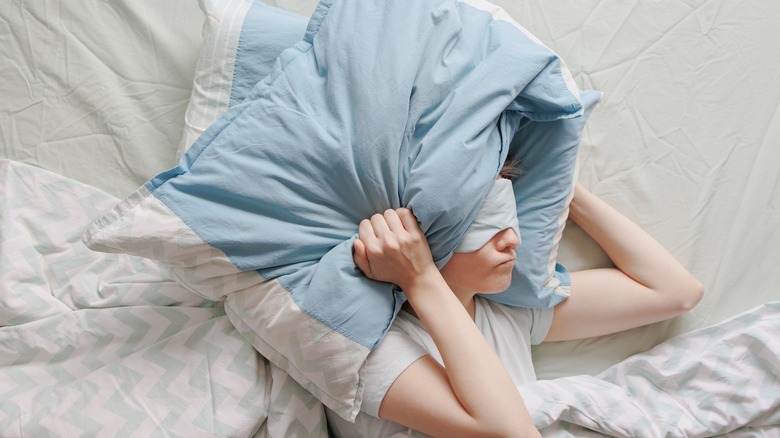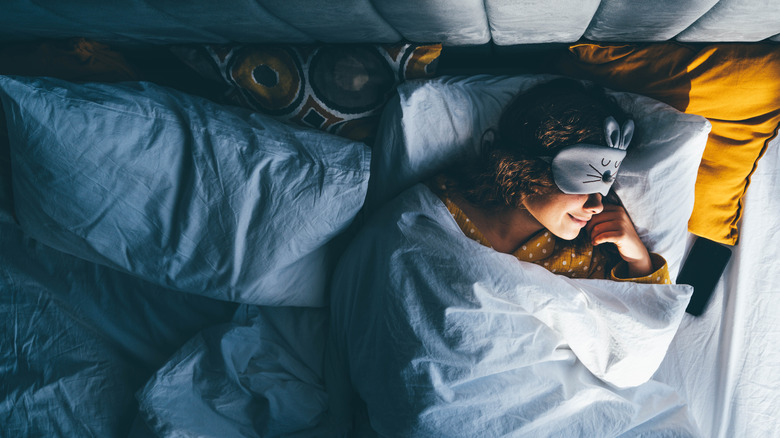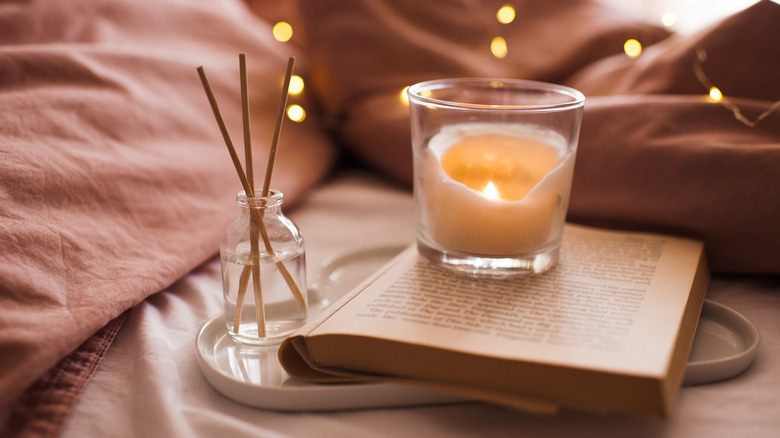These Tips Will Help You Get A Perfect Nights Sleep In A Hotel
We've all been there, tossing and turning in a hotel room, knowing we're going to spend the next day wandering zombie-like through a new city or business meeting. Lynelle Schneeberg, a sleep psychologist, told Psychology Today that "the first night you stay anywhere new, you often sleep more poorly." Luckily, sleep tends to improve the longer you stay somewhere. But, what if you have to move hotels often? And how can you try to avoid the first-night effect?
Our first tip is to do some research before you book a hotel. Search through reviews for terms like "uncomfortable bed/pillow," "noisy," or "thin walls." Equally, look for positive reviews like "comfortable mattress" and "quiet." You can't anticipate every problem, but if most reviews mention hearing their neighbors screaming through the walls, it's a safe bet you will too. Amerisleep goes further than this, recommending you request a room away from elevators, ice machines, and other noisy spaces. They also advise packing earplugs. Wear them for a few days before you travel to get used to them, and use them on the airplane for a peaceful flight too.
Reduce light and lower the temperature
As well as reducing noise, you'll also want to reduce light. Most experts, including John E. Discala writing for Inc, recommend taking a sleep mask. Discala has other recommendations too, including taking clothes pins to hold curtains together and using towels to block light coming from under the door. And, just like at home, you should reduce your exposure to blue light before bedtime. Harvard Health Publishing states that blue light suppresses the secretion of melatonin, shifting circadian rhythms and ultimately affecting your sleep. So put your devices away two or three hours before bedtime.
Don't be tempted to crank up the heat in your hotel room either. Sleep Foundation recommends setting the air to 60-67 degrees Fahrenheit for the best night's sleep. There are several factors to take into account when setting the room temperature though, so play around a little. Be aware of the thickness of the comforter and the type of pajamas you're wearing (according to Amerisleep, lightweight cotton pajamas are best.)
Stick to what's familiar
Our final tips are about sticking to what's familiar or recreating as familiar an environment as possible in your hotel room. It can be tempting to stay awake watching TV and ordering room service, but that's probably not going to set you up for a restful night. Sleepopolis advises following the same bedtime routine as you have at home, whether that's reading, doing yoga, or having a shower. Sleep Foundation says that bringing small, sentimental items from home, like a photo from your nightstand, can also be helpful, as can bringing larger items like a pillow (this could be tricky on a budget airline.)
Psychology Today notes that detergents and chemicals used in hotels can have an off-putting smell, so you should come prepared to mask it. Use a fragrant room spray or perfume to make the room smell more like home. Finally, Sleep Foundation recommends using relaxation techniques, like breath work, if you still can't sleep.


